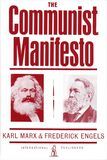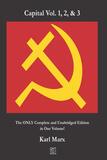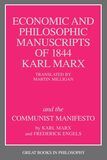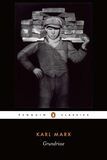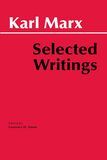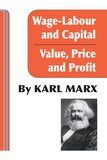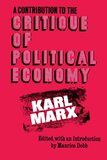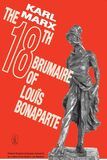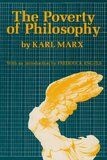Top 10 Books of Karl Marx [2025]
Karl Marx, a German philosopher, economist, and writer, was the biggest supporter of communism and thus called the Father of Communism. Learn about Marx’s theories on communism, capitalism, historical materialism, wage workers, alienation, and much more from the following list of top 10 books.
- The Communist Manifesto ( Get this book )
- Capital (German: Das Kapital) ( Get this book )
- Economic & Philosophic Manuscripts of 1844 ( Get this book )
- Grundrisse ( Get this book )
- Selected Writings ( Get this book )
- The German Ideology ( Get this book )
- Wage Labour and Capital ( Get this book )
- A Contribution to the Critique of Political Economy ( Get this book )
- The Eighteenth Brumaire of Louis Bonaparte ( Get this book )
- The Poverty of Philosophy ( Get this book )
Let us discuss each book in detail, along with its key takeaways and reviews.
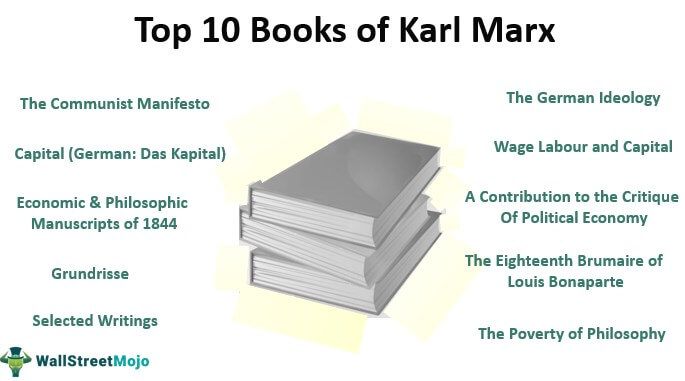
#1 - The Communist Manifesto
Book Review:
The book, as the title suggests, is the manifesto of the communist party, which Karl Marx and Friedrich Engels compiled. Marx criticizes communism and challenges the communist party to express their ideologies; he said: “It is high time that Communists should openly, in the face of the whole world, publish their views, their aims, their tendencies, and meet this nursery tale of the Specter of Communism with a Manifesto of the party itself.”
Key Takeaways
- When relationships between government and citizens are no longer well-suited, a revolution happens, and a new ruling class takes power.
- The primary beneficiaries of the movement from feudalism to capitalism were the urban middle-class and wealthy peasants.
- The laborers were the significant sufferers.
- The laborers were the major sufferers.
- Learn about the progression from capitalism to socialism and from socialism to communism.
#2 - Capital (German: Das Kapital)
Book Review:
The book is another acclaimed work by Karl Marx in which he closely analyzes the capitalist mode of production in England. England was the most advanced industrial society of his times, and he highly criticized the capitalist methods.
Key Takeaways
- Marx elaborates on the relationship between a commodity’s value and social dimension.
- Marx reveals the economic patterns underpinning the capital model of production.
- Wage labor system in the capitalist model
#3 - Economic & Philosophic Manuscripts of 1844
Book Review:
The book is a series of notes and essays written by Karl Marx in 1844. These notes are an expression of Marx’s analysis of economics. The book covers a wide range of topics like communism, capitalism, private property, alienation, and much more, as Marx sees them, but it could not be published during his lifetime.
Key Takeaways
- Marx argues that modern industrial societies isolated wage workers.
- Observe Marx’s analysis of economics.
- Marx says workers rely on labor work to gain money to live, but actually, they are not living but just surviving.
#4 - Grundrisse
Foundations of Critique of Political Economy
Book Review:
The book is a wide-ranged subjective manuscript covering all six of Marx’s economics sections. It is a lengthy and unfinished collection of documents, also described as a rough draft of Das Kapital. (English: Capital)
Key Takeaways
- The book's subject matter includes concepts like production, distribution, etc.
- Observe these methodologies from Marx’s point of view.
- Please get to know the reason behind his criticism of the capitalist model.
#5 - Selected Writings
Book Review:
The book is a reflection of Marx's life in chronological order. It includes nearly all of Marx's works and contains strategically assembled extracts from Marx's political, philosophical, and economic thoughts. However, the book was written by someone other than Karl Marx himself, but Professor David McClellan made the greatest works of Marx's into a single book.
Key Takeaways
- It is extracted from some of Marx's well-known works.
- The reader gets the feeling of an unparalleled overview of Marx's thoughts.
- It includes selected works from 'The Communist Manifesto' and 'Capital.'
#6- The German Ideology
Book Review:
The book is a collection of manuscripts written by Karl Marx and Freindrich Engels. However, their work belongs to the period of 1846, but since they could not find any publisher. Hence, this work of theirs was first published in 1932.
Key Takeaways
- Marx and Engels clear their position on materialism, labor, production, alienation, etc.
- They visualize the course of true socialism based on the dialects of Hengel.
- Marx criticized the views of various economic ideologists of his period, like Bruno Bauer and Max Stirner.
#7 - Wage Labour and Capital
Book Review:
The book is an outstanding essay that is based on fundamental economic concepts but has deep Karl Marx's ideology. Therefore, the book is considered a precursor to his masterpiece Das Kapital (Eng: Capital).
Key Takeaways
- Marx put aside his materialistic conceptions of history and started showing the scientific rationale for his ideas of alienated labor.
- Capitalism would eventually lead to the proletarian revolution.
- A proletarian is a member of the wage-earner class in a capitalist society. Their only material possession is just their labor power.
#8 - A Contribution to the Critique of Political Economy
Book Review:
The book analyzes the economic model of capitalism and the quantity theory of money. Through this book, Karl Marx criticizes the writings of the leading theoretical exponents of capitalism.
Key Takeaways
- Marx exposed the inherent contradictions of capitalism.
- He tries to attack free-market capitalism.
- Marx needed to be working within the tradition of the great classical economists.
#9 - The Eighteenth Brumaire of Louis Bonaparte
Book Review:
The book is an essay that discusses the French coup o f1851 in which Louis Napoleon Bonaparte assumed dictatorial powers. In addition, the book shows Karl Marx as a social and political historian.
Key Takeaways
- Marx treated actual historical events from his materialist conception of history.
- Experience the dictatorship of Napoleon.
- It is about the struggle of French people during the revolution period.
#10 - The Poverty of Philosophy
Book Review
Karl Marx answers the economic and philosophical arguments made by French anarchist Pierre Joseph Proudhon in his books 'The System of Economic Contradictions' and 'The Philosophy of Poverty.'
Key Takeaways
- Marx rejects the ideas of Proudhon on consumption, tax, and denial of strike actions.
- He also criticizes the philosophical arguments of Proudhon.
- The book deals with the concepts of Economics.
AMAZON ASSOCIATE DISCLOSURE
WallStreetMojo is a participant in the Amazon Services LLC Associates Program, an affiliate advertising program designed to provide a means for sites to earn advertising fees by advertising and linking to amazon.com
